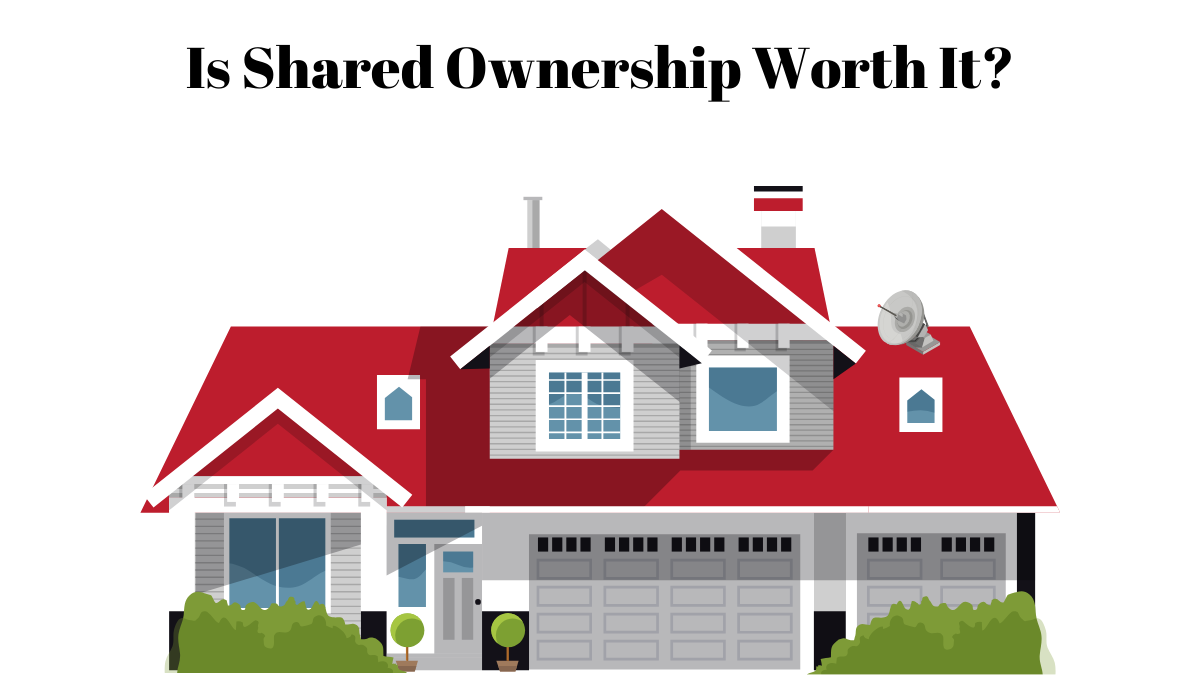Are you curious to talk about “Is shared ownership worth it? When it comes to buying a home, the high costs can make it seem like an impossible dream for many. That is where shared ownership comes into play.
It is a scheme designed to shorten the gap between renting and buying outright, which makes it a more attainable goal for those who cannot quite afford to buy a home on the open market. However, is shared ownership really worth it? Let us talk about “is shared ownership worth it?” more in detail.
Contents
Shared ownership is a part-buy, part-rent scheme. It allows you to buy a share of a property (usually between 25% and 75%) and pay rent on the rest. The idea is that you own part of your home rather than paying rent with no return.
Over time, you can buy more shares in your home, a process which is known as ‘staircasing’ until you own it outright.
- The biggest advantage is affordability. You need a smaller deposit and mortgage for just the share you are buying, not the full property value.
- You can increase your ownership over time, which can be more manageable financially.
- Unlike renting, you have a more secure tenure and the freedom to make your house a home.
- Shared ownership properties are limited and often in new developments.
- There can be restrictions on selling and altering the property.
- You are responsible for maintenance costs, and rent can increase.
Shared ownership can be a great stepping stone to full homeownership, especially if you are a first-time buyer or have a limited budget. However, it is not without its drawbacks. You will need to see the pros and cons carefully, considering factors like eligibility, long-term costs, and your personal circumstances.
Applying for a shared ownership scheme is a straightforward process that involves a few key steps. Here is a simplified guide to help you get started:
- Eligibility Check: First, you need to check if you are eligible for a shared ownership scheme. Eligibility criteria often include factors like your income, whether you are a first-time buyer, or if you currently rent a council or housing association property.
- Find a Property: Once you are confirmed eligible, the next step is to find a shared ownership property that you’re interested in. You can search for available properties through local housing associations or designated websites.
- Reservation: After finding a property, you can reserve it by paying a reservation fee. This fee ensures that the property is held for you for a certain period while you proceed with the necessary paperwork.
- Legal Work: Finally, you will need to engage a solicitor or a licensed conveyancer to handle the legal aspects of purchasing your share of the property, known as conveyancing.
The minimum deposit required for a shared ownership property typically ranges between 5-10% of the equity share you’re purchasing. Also, you should have access to at least £4,000 to cover other costs associated with buying a property.
However, these figures can vary depending on the property and the housing association’s requirements. It is always a good idea to check the particular criteria for the property you are interested in.
Conclusion
In conclusion, we have discussed all about the concepts of “Is shared ownership worth it?” and related concepts. We understand, shared ownership is not one solution for everything, but it can be a valuable option for getting onto the property ladder. Just make sure to do your homework, understand all the terms, and consider whether it aligns with your homeownership goals.
FAQs
Shared ownership is a government initiative that allows you to buy a share of a home (usually between 25% and 75%) and pay rent on the remaining share. It is designed to help people with smaller deposits and lower incomes get onto the property ladder.
To qualify, your household income must be £80,000 or less (£90,000 in London). You should also be a first-time buyer or someone who used to own a home but cannot afford to buy one now. Some schemes require you to have a connection to the area where you are buying.
The main advantage is that it requires a smaller deposit compared to buying a home outright. It can be a stepping stone out of renting and onto the property ladder, which leads to full home ownership.
The rent amount varies, but housing associations typically charge around 2.75% rent on their share of the property. For example, if you own a 50% share of a £150,000 property, you might pay around £171.87 per month in rent.
Read More
- Tax on State Pensions: Is State Pension Taxable
- Working from Home Tax Relief: A Simple Guide
- Winter Fuel Allowance – How do I claim a Winter Fuel Allowance?
- 1257L Tax Codes: What Employers Need to Know
- DWP Cost of Living Payments
- Understanding the Warm Home Discount Scheme News
- VAT Threshold 2023 When Running a Business

I am a dedicated lifestyle and fashion enthusiast, always looking for the latest trends and timeless styles. With a flair for creativity and a passion for self-expression, I provide fresh insights and tips on elevating everyday living and personal style.
